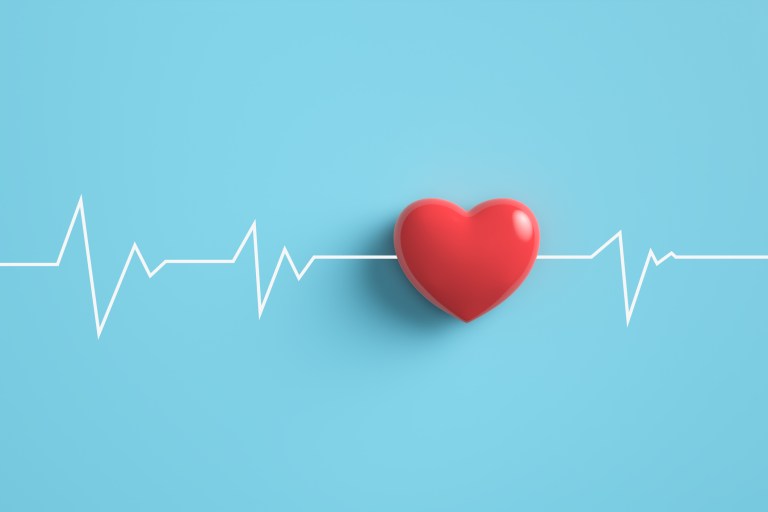
The paramedics cut off my bracelets and read the back of each. These two bracelets note my heart conditions and allergies. They saved my life!
Joe, MedicAlert Member since 2015
Click Here to Renew. Need help? Call us at 1-800-432-5378 Monday – Friday 6:00 a.m. – 4:30 p.m. PT
To say Joe C. is passionate about music would be an understatement. This 58-year-old father of two beautiful daughters earned a living as a successful traveling musician for years. That is, until he was diagnosed with multiple heart conditions after surviving a widow maker heart attack.
Living with heart disease made it impossible for Joe to continue traveling the country to perform for his fans. Yet today, he says “although I’m permanently disabled and money is tight, each day I open my eyes is a blessing, and I’m making every day count.”
To keep living each day to the fullest, Joe knows he has to do everything he can to stay healthy and safe. This is why he didn’t hesitate when his doctor suggested he look into the life-saving technology that comes with wearing medical identification jewelry such as MedicAlert bracelets.

Learn more about this condition on the medical conditions page.
Read More >
Read about other conditions that our MedicAlert members live with.
Read More >
Prior to Joe’s near fatal widow maker heart attack, Joe suffered a silent heart attack. It was at that time he was diagnosed with ischemic heart disease, angina, and hyperlipidemia. Joe’s doctors discovered he was also allergic to isosorbide. This life-saving treatment for angina turned out to be a double-edged sword for Joe. With so many side effects and dangerous drug interactions, it was important for Joe’s family and medical emergency response teams to understand and have access to this critical allergies alert.
So what did Joe do? He made the smart decision to obtain not one, but two MedicAlert bracelets to ensure that his personal medical history and emergency medical details were easily accessible in case of an accident or other medical emergency. Having two medical bracelets as part of Joe’s emergency preparedness plan saved his life.
“When I suffered a widow maker heart attack, my wife [of 30 years] was so distraught that she wasn’t able to tell the paramedics of all my heart issues,” explains Joe. “The paramedics cut off my MedicAlert bracelets and read the back of each. These two bracelets note my heart conditions and allergies. They saved my life!”
There are many components to every heart attack survival plan. One of the most important components is paramedic communication to ensure the safety and accuracy of emergency treatment plans.
Joe has been a MedicAlert member since 2015, and he has no plans to change this. “Having these bracelets have truly saved my life.”
Because Joe lives with multiple heart conditions (ischemic heart disease, angina, and hyperlipidemia) day-to-day living can be challenging. The symptoms alone can cause any number of medical emergencies, leading to frequent visits to the emergency room (ER).
Smoking, high blood pressure, high cholesterol, and family history of heart disease are risk factors.
Widow maker heart attacks have a high mortality rate, requiring immediate medical intervention such as angioplasty or bypass surgery for improved survival.
Widow maker heart attacks, or left main artery occlusions, are one of the most severe types of heart attacks due to complete blockage of the left main coronary artery.
Ischemic heart disease (also called coronary heart disease or CHD) is a term used to describe heart problems caused by narrowed coronary (heart) arteries. These arteries supply blood to the heart muscle. People living with CHD may experience angina, shortness of breath, fatigue, and heart attack.
While there are many risk factors for ischemic heart disease, age increases the risk of narrowed and damaged arteries. In addition, men are generally at greater risk of coronary heart disease. Other risk factors include:
Cardiologists often treat coronary heart disease with cholesterol drugs such as statins and fibrates, low-dose aspirin, beta-blockers, calcium channel blockers, angiotensin-converting enzyme (ACE) inhibitors, angiotensin II receptor blockers (ARBs), nitroglycerin, and ranolazine. Lifestyle changes are also part of treatment plans for CHD.
If medications and lifestyle changes don’t work, procedures such as coronary angioplasty and stent placement, or coronary artery bypass graft surgery (CABG), may be recommended to fix a blocked artery.
Angina refers to chest pain caused by reduced blood flow to the heart. Also called angina pectoris, angina is one of the symptoms of ischemic heart disease. Risk factors include being overweight, physical inactivity, an unhealthy diet, and smoking.
Treatments for angina include medications such as nitrates and lifestyle changes. In severe cases, procedures such as angioplasty or stenting may be required.
Hyperlipidemia is the medical term for high cholesterol. Also known as dyslipidemia, this condition is characterized by an overabundance of lipids (fats) in the blood. Risk factors include having a family history of high cholesterol, obesity, an unhealthy diet, smoking, and drinking. Hyperlipidemia can also affect individuals living with diabetes or hypothyroidism.
Hyperlipidemia is often treated with medicines such as beta-blockers, diuretics, steroids, hormonal birth control, and HIV antiretrovirals.
The paramedics cut off my bracelets and read the back of each. These two bracelets note my heart conditions and allergies. They saved my life!
Joe, MedicAlert Member since 2015
A medical emergency can happen to anyone at any time. It is crucial to prioritize your safety and well-being by considering a MedicAlert ID and protection plan. This is especially true if you are living with one or more heart conditions and have life-threatening allergies to medications.
A MedicAlert ID and protection plan can speak for you immediately if you are unable to communicate emergency medical details to first responders and ER teams in an emergency. MedicAlert can even provide your most accurate and up-to-date personal medical history during regular doctor visits.
An Advantage Plus protection plan provides:
To get started, select a membership plan that fits your lifestyle at MedicAlert. Plans include Basic, Advantage, and Advantage Plus. All options provide the protection you need, with additional services such as Action Plans and Advanced Directive/DNR Storage at the Advantage and Advantage Plus levels.
Once you select your plan, you’ll navigate to the Medical IDs page to choose your ID. After selecting your ID, you’ll choose your free custom engraving and proceed to the checkout process. That’s it! Now you can enjoy having peace of mind knowing if you are in an accident or have another medical emergency, MedicAlert will be by your side, protecting you, always.
Shop MedicAlert IDs and protection plans today!